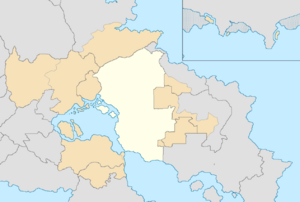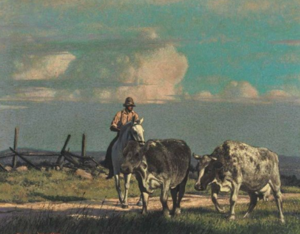Arcosphere: Difference between revisions
Tag: 2017 source edit |
|||
| (4 intermediate revisions by one other user not shown) | |||
| Line 6: | Line 6: | ||
Research and public polling data has seen that countries adjacent to Arcerion generally have mixed political views, acknowledging that the nation has near economic and military hegemony over the Malentine Basin, that the political and diplomatic negotiations with it are increasingly difficult due to its bellicose stance and fervent defense of its national sovereignty, which often results in unilateral and opposed diplomatic actions such as the use of intelligence services internationally as well as airstrikes. | Research and public polling data has seen that countries adjacent to Arcerion generally have mixed political views, acknowledging that the nation has near economic and military hegemony over the Malentine Basin, that the political and diplomatic negotiations with it are increasingly difficult due to its bellicose stance and fervent defense of its national sovereignty, which often results in unilateral and opposed diplomatic actions such as the use of intelligence services internationally as well as airstrikes. | ||
Arcer citizens abroad within the Arcosphere are also considered to be part of the [[Arco Diaspora]]. | |||
== Origins and Historical Context == | == Origins and Historical Context == | ||
The term ''Arcosphere'' was first coined in the Kinnaird Financial Times' in the early 1800s. It referred to a growing reliance by the indigenous tribes and proto-states of the Malentine Basin on Ardmori and Arcer commerce, shipping, and police actions as the Arcer Colony grew into the Arcer Heartland. It referred to Arcerion as the center of a Malentine-based economy, where the ports of Kurst and Chester-on-Moore were the vibrant and growing centers of Occidental business, industry, and power. The term saw infrequent but regular usage throughout the 19th and 20th centuries, as Arcerion grew into the Malentine Sea and with the creation of Howland Governorate expanded Arco commerce into the Albion Sea. | [[File:Arco painting.png|thumb|''Heartland Cowboy'', a painting by [[Cian O'Neilan]], depicting an Arco farmer in the interior, in the mid-19th century. ]] | ||
The term ''Arcosphere'' was first coined in the [[Kinnaird Financial Times]]' in the early 1800s. It referred to a growing reliance by the indigenous tribes and proto-states of the Malentine Basin on [[Ardmore|Ardmori]] and Arcer commerce, shipping, and police actions as the Arcer Colony grew into the Arcer Heartland. It referred to Arcerion as the center of a Malentine-based economy, where the ports of Kurst and Chester-on-Moore were the vibrant and growing centers of Occidental business, industry, and power. The term saw infrequent but regular usage throughout the 19th and 20th centuries, as Arcerion grew into the Malentine Sea and with the creation of Howland Governorate expanded Arco commerce into the Albion Sea. | |||
=== Influence on Indigenous Peoples === | === Influence on Indigenous Peoples === | ||
The history between Ardmori colonists, and later Arcer citizens, is contentious as Arcerion displaced or waged wars to expand the Occidental way of life deeper into Crona. To date, the grouping of Indigenous nations that border Arcerion are reliant on it for much of their energy, fiscal and humanitarian aid, as well as military protection. Arcerion maintains normalized consular relations with most of its neighbours, but only has formal embassies in Kelekona. | The history between Ardmori colonists, and later Arcer citizens, is contentious as Arcerion displaced or waged wars to expand the Occidental way of life deeper into Crona. To date, the grouping of Indigenous nations that border Arcerion are reliant on it for much of their energy, fiscal and humanitarian aid, as well as military protection. Arcerion maintains normalized consular relations with most of its neighbours, but only has formal embassies in Kelekona. | ||
== Culture and Economics == | == Culture and Economics == | ||
Due to historic reliance on Arcer commerce and trade, the bordering indigenous nations of South Crona get much of their Occidental media and cultural influence from Arcerion. | Due to historic reliance on Arcer commerce and trade, the bordering indigenous nations of [[Crona|South Crona]] get much of their [[Occidental world|Occidental]] media and cultural influence from Arcerion. The obvious exception is the [[New Archduchy]], as it still is fairly Urcean-aligned. Rule of law and common law are increasingly popular political movements for judiciary reform in Indigenous countries, and the restructuring of legislative chambers to model Arcer Parliament can be seen in nations such as Malentina, which itself draws much of its political tradition from Arcerion. | ||
This is concurrent with free market capitalism and the role of an unregulated or semi-regulated traditional market economy in these countries. They all follow the Arcer model of a primarily mixed economy focusing on equal parts agriculture, industry, and post-industrial with safe regulations and limited government oversight. However, the lack of strong Occidental cultural bases in civil law, there have been violent backlashes against much of these trends leading to communist and socialist revolts in many of the nations, culminating in the Fourth Bush War where they tried to achieve independent Indigenous states within Arcerion's Northern regions. Reliance on the [[Arcer Pound]] as an unofficial currency is common, as the nations of Malentina and Istrenya are unable to sustain controls on the inflation of their national currencies so it is equally common to see the Arcer Pound used for daily commerce. | |||
[[Category:Arcerion]] | [[Category:Arcerion]] | ||
[[Category:Spheres of influence]] | |||
[[Category: IXWB]] | [[Category: IXWB]] | ||
Latest revision as of 21:01, 20 July 2024

The Arcosphere is an area that is considered to be under the diplomatic, military, and economic influence of the Confederated Provinces of Arcerion. The region is culturally and socially aligned despite a variety of ethnic backgrounds, and shares strong historical ties that translate to modern political and military co-operation. The Arcosphere is not a defined or recognized entity by any international body or Arcerion itself, but instead commonly referred to by academics, diplomats, and historians to describe the Malentine Basin as well as parts of the Southeastern Cronan Peninsula.
Countries usually considered to be part of the Arcopshere are Arcerion, Kelekona, Istrenya, Malentina, Washakara, Titechaxha, and other historical nations no longer in existence.
Research and public polling data has seen that countries adjacent to Arcerion generally have mixed political views, acknowledging that the nation has near economic and military hegemony over the Malentine Basin, that the political and diplomatic negotiations with it are increasingly difficult due to its bellicose stance and fervent defense of its national sovereignty, which often results in unilateral and opposed diplomatic actions such as the use of intelligence services internationally as well as airstrikes.
Arcer citizens abroad within the Arcosphere are also considered to be part of the Arco Diaspora.
Origins and Historical Context

The term Arcosphere was first coined in the Kinnaird Financial Times' in the early 1800s. It referred to a growing reliance by the indigenous tribes and proto-states of the Malentine Basin on Ardmori and Arcer commerce, shipping, and police actions as the Arcer Colony grew into the Arcer Heartland. It referred to Arcerion as the center of a Malentine-based economy, where the ports of Kurst and Chester-on-Moore were the vibrant and growing centers of Occidental business, industry, and power. The term saw infrequent but regular usage throughout the 19th and 20th centuries, as Arcerion grew into the Malentine Sea and with the creation of Howland Governorate expanded Arco commerce into the Albion Sea.
Influence on Indigenous Peoples
The history between Ardmori colonists, and later Arcer citizens, is contentious as Arcerion displaced or waged wars to expand the Occidental way of life deeper into Crona. To date, the grouping of Indigenous nations that border Arcerion are reliant on it for much of their energy, fiscal and humanitarian aid, as well as military protection. Arcerion maintains normalized consular relations with most of its neighbours, but only has formal embassies in Kelekona.
Culture and Economics
Due to historic reliance on Arcer commerce and trade, the bordering indigenous nations of South Crona get much of their Occidental media and cultural influence from Arcerion. The obvious exception is the New Archduchy, as it still is fairly Urcean-aligned. Rule of law and common law are increasingly popular political movements for judiciary reform in Indigenous countries, and the restructuring of legislative chambers to model Arcer Parliament can be seen in nations such as Malentina, which itself draws much of its political tradition from Arcerion.
This is concurrent with free market capitalism and the role of an unregulated or semi-regulated traditional market economy in these countries. They all follow the Arcer model of a primarily mixed economy focusing on equal parts agriculture, industry, and post-industrial with safe regulations and limited government oversight. However, the lack of strong Occidental cultural bases in civil law, there have been violent backlashes against much of these trends leading to communist and socialist revolts in many of the nations, culminating in the Fourth Bush War where they tried to achieve independent Indigenous states within Arcerion's Northern regions. Reliance on the Arcer Pound as an unofficial currency is common, as the nations of Malentina and Istrenya are unable to sustain controls on the inflation of their national currencies so it is equally common to see the Arcer Pound used for daily commerce.